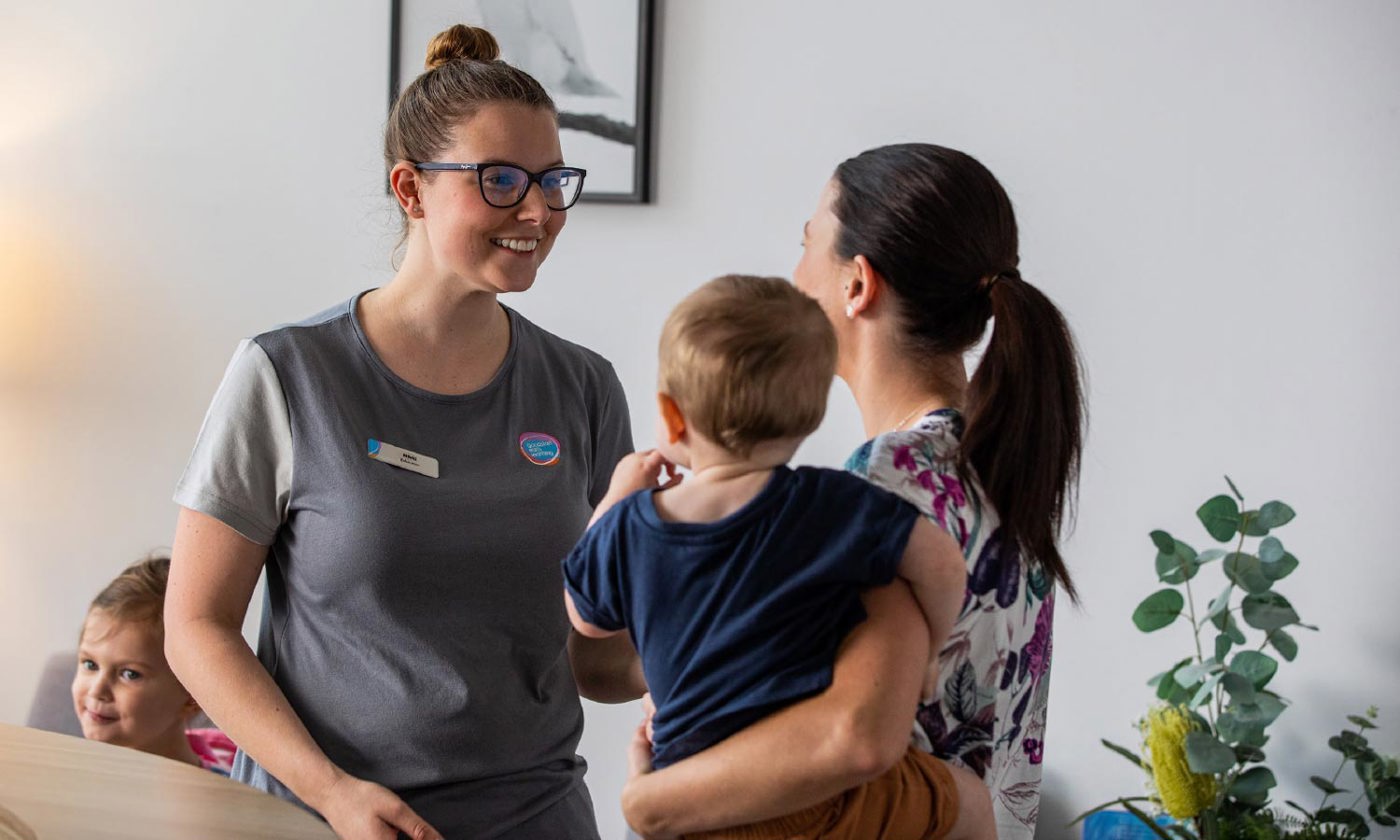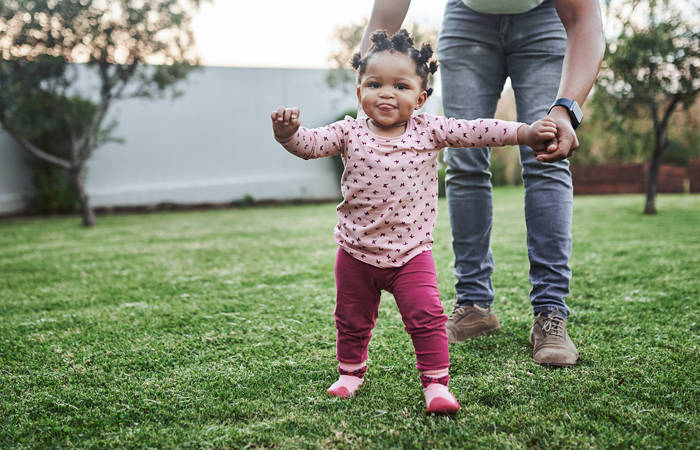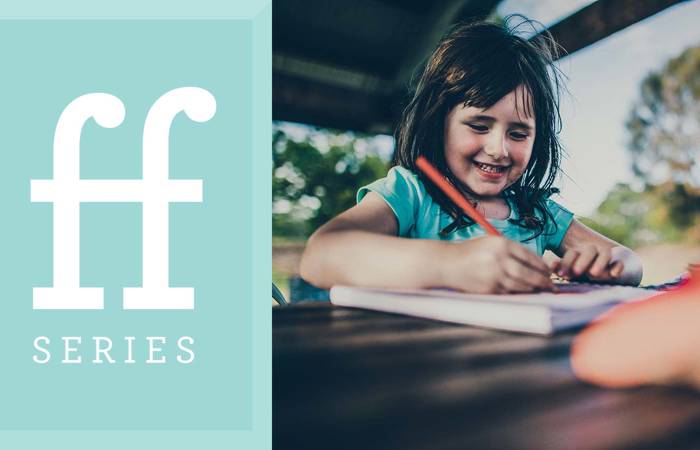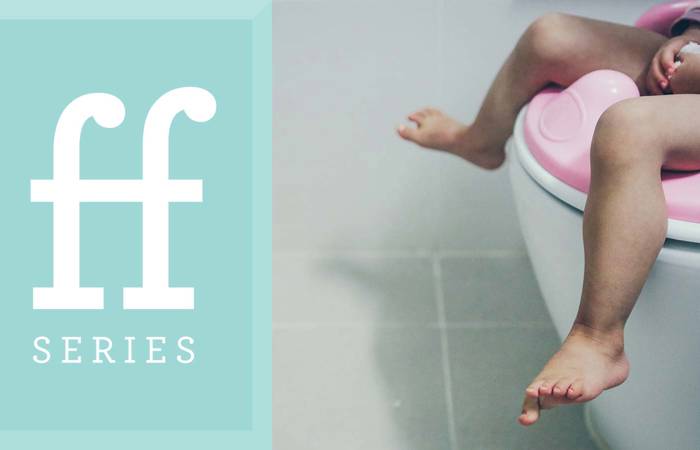Like what you see?
Sign up to receive more free parenting advice.
Thank you for subscribing to our newsletter!
Child Development

Our children learn so much in their first five years – physically, intellectually, and emotionally. From speaking, reading and writing, to crawling, walking and making their first friends.
Of course all children are different, however as parents, it's important to be aware if your child is not meeting expected milestones, and to understand when and how to seek support.
Early childhood intervention is all about giving all children the best possible start in life, regardless of differences in learning and development.
Why is intervening early important?
Penny Markham, Goodstart Early Learning’s National Lead for Social Inclusion, believes it is critical to identify and take action as soon as possible if you think your child may need some extra support.
“If you start early, you have a greater opportunity to address any gaps in development”, she said. “If children are not supported they will already be behind when they start school.”
The National Disability Insurance Scheme (NDIS) recognised the importance of taking action early, and developed an “Early Childhood Approach” to effectively support children aged up to six years old, who have disabilities or developmental delays. The scheme offers a range of support, from group sessions to complete service plans.
By acting early and accessing the right services, children may progress to a point of no longer being a NDIS participant.
What should parents look out for?
All children will grow at their own pace, but Kathryn Marrington, National Manager Speech Pathology at Goodstart Early Learning, says there are things you can look out for in your child’s development, that may suggest they need more support. For example, is your child:
- forming connections with others… and how?
- increasing in confidence to explore their surroundings through play?
- trying to communicate their thoughts and ideas in a range of different ways and using their entire body to learn and develop new skills?
- showing signs of frustration around communication or exploration?
- displaying emotional dysregulation such as withdrawal or distress?
How do families get started?
Kathryn says raising any concerns with your early learning centre team is a good first step.
“Early Learning partners are exactly that - they form the team around your child,” Kathryn explains.
“They come with a wealth of knowledge about childhood development but they also understand the unique attributes of your child.
“Every day they share experiences with your child during daily routines, rituals and caregiving moments. It is important to share information with your early learning partners so that any concerns can be unpacked together and your child’s strengths can be amplified in all environments.”
If you start early, you have a greater opportunity to address any gaps in development.Penny Markham
Stay up to date with the latest news and articles from First Five Years
Thank you for subscribing to our newsletter!
Working together to support your child
Early childhood intervention works best when families and professionals work together to help children learn and practise skills in their daily activities and routines.
So parents and educators alike need information, tools and support to help children’s development and participation.
Goodstart Early Learning has been investing in an EChO (Enhancing Children’s Outcomes) approach since 2015. The innovative “test and learn” model sees Goodstart educators in 40 centres across Australia working alongside allied health teams to achieve an uplift in children with vulnerabilities.
Using National Disability Insurance Scheme funding Goodstart’s model is set to grow, making support more convenient and accessible by delivering services such as speech therapy, occupational therapy, and child and family practitioner support, in an environment that children are already frequenting, and that they – and their families – are comfortable in and trust.
Goodstart works with local organisations known as Early Childhood Partners, in order to:
- connect parents to early childhood intervention service providers
- share practical information about child development
- use their expertise to understand the differences in learning and development that your child might experience
- identify if your child is likely to benefit from early support
- support you to apply to the NDIS by providing information and evidence for your application, and
- monitor your child’s progress and support them to transition from the Early Childhood Approach.
By working together, Goodstart, Early Childhood Partners and families can make sure children have access to the services they need to have the best start in life.
Expanding support to include even more children
The NDIS Early Childhood Approach funding allows Goodstart to expand their support offering to more – and eventually all – their centres. Ms Markham is confident that the need is there.
“It’s likely that more than 2,000 children just at Goodstart could benefit from this service and early education and care,” Ms Markham explained.
“It’s not just children with an NDIS plan who need support – there are others who may also experience some challenges during their day.
“In this case the centre team might talk with families about support options that could help, and provide a referral to an Early Childhood Partner organisation.”
But it’s not just the children who gain from accessing support through their early learning provider. Goodstart has received overwhelmingly positive feedback and support from families, who benefit from:
- Accessibility and convenience. Families and children are not having their days disrupted running to and from appointments in other locations. Traditionally, waitlists for specialists are long, and appointments difficult to get to.
- The security and comfort of an environment they are familiar with and trust. The service takes a lot of stress out of trying to navigate a tricky system.
- Having teachers and educators better able to support both parents and children. Educators have the opportunity to see how children are progressing day-by-day. By embedding support services in early childhood care, you have the benefit of working to the strategy every day and making changes to make sure it is effective.
- Involving early learning professionals on a daily basis. They can help complete observations and assessments, and organise and report on your child’s plan and agreement.
- Engaging in 1:1 and group therapy sessions at the centre where the child is already happy and comfortable.







